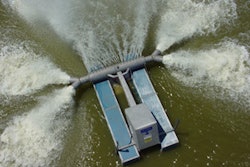OLYMPIA, Wash. (AP) — Opponents of Washington state's liquor-privatization initiative made a final bid Thursday to invalidate the voter-approved law just two weeks before it is set to take effect.
An attorney argued before the Washington Supreme Court that the measure violates rules that require initiatives to address only one subject, since it includes extraneous issues such as a provision to set aside $10 million for public safety. Lawyer Michael Subit also contended the initiative's title misled voters, hiding what he described as taxes on those who distribute and sell liquor.
The initiative called those new payments "fees," even though they were based on volume.
"That is verbal sleight of hand. That's like calling the B&O tax 'a fee for the privilege of doing business,'" Subit said, referring to the Business and Occupation tax.
Justice Charles Wiggins seemed to agree, telling an attorney arguing in support of the initiative, "It sure looks like a sales tax."
Subit is hoping for an expedited decision from a court that typically takes months to publicize its opinions. The initiative takes effect June 1, and the Washington Liquor Control Board already has auctioned off the rights to sell liquor at many of its state-run stores and issued layoff notices to 1,200 employees.
Voters approved the initiative last fall to privatize liquor sales and dismantle Washington's state-run liquor system, which was formed in the 1930s in the aftermath of Prohibition. The measure, backed by retailing giant Costco, allows stores larger than 10,000 square feet to sell liquor, though it could allow smaller stores to sell liquor if there are no other large retail outlets in their area.
A Cowlitz County judge in March upheld the initiative, but opponents appealed that ruling directly to the Supreme Court.
Mary Tennyson, a senior assistant attorney general, defended the initiative. She told justices that the $10 million dedicated to public safety issues followed a historical practice of devoting some liquor proceeds to local governments.
And she argued the fees were not misleading because the initiative clearly states how those costs are set and who pays for them.
Liquor distributors were allowed to begin selling products directly to restaurants and other liquor license holders March 1. The state's last day for liquor sales is May 31, and the last liquor shipment to state stores is scheduled for May 18.
If the Supreme Court overturns the initiative, the first order of business would be to restock the state stores' dwindling liquor supplies, said Pat Kohler, Liquor Control Board director. Beyond that, the board would have to reach out to the governor and lawmakers to determine next steps, she said.
"This is kind of like a cruise ship, and it's a little hard to turn it around quickly," Kohler said. "But the voters did speak pretty clearly that they wanted change."
Nearly 20 states control their retail or wholesale liquor business. Some, such as Iowa and West Virginia, have relinquished partial control in recent years, but Washington would be the first in that group to abandon the liquor business entirely.
___
Associated Press writer Shannon Dininny in Yakima contributed to this report.
Opponents Make Last Bid To Halt Wash. Liquor Law
Opponents of Washington state's liquor-privatization initiative made a final bid Thursday to invalidate the voter-approved law just two weeks before it is set to take effect.
May 18, 2012
Latest in Operations






















